UNDERSTANDING CAT OWNERS AND THEIR ATTITUDES TOWARDS PARASITE CONTROL
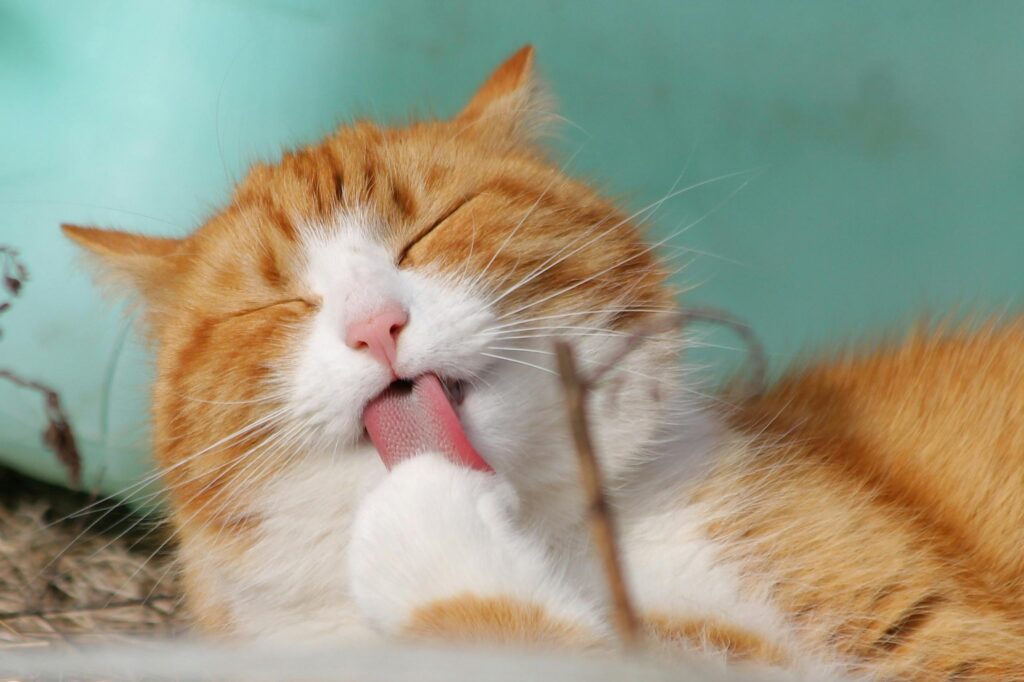
We surveyed cat owners worldwide to better understand how they relate to their pets and how that influences their approach to parasite protection. From our research, we created seven distinct owner personas. Each personality type represents a certain type of owner based on their traits, behaviours and motivations. Grouping owners in this way allows us to tailor our communications effectively.
We surveyed cat owners worldwide to better understand how they relate to their pets and how that influences their approach to parasite protection. From our research, we created seven distinct owner personas. Each personality type represents a certain type of owner based on their traits, behaviours and motivations. Grouping owners in this way allows us to tailor our communications effectively.
Dr Gad Baneth,
DVM PhD Dip ECVP
Professor of Veterinary Parasitology and Infectious Diseases,
Hebrew University of Jerusalem, Israel
How we created the owner personas
1,400 owners surveyed – in the US, Brazil, the UK, France, Germany, Italy, and Australia (n=200 cat owners per market).(1)
Insights gained – included owner attitudes towards parasite protection and their cat’s general health and well-being. We also included the role veterinary professionals, online resources and social media play in influencing attitudes and behaviour.
Owner types identified/ personas created – according to the patterns in their responses to our questionnaire. We aimed to find clusters of respondents who are as similar as possible to everyone within their cluster but as different as possible to all the other
clusters.
Personas explored – regarding attitudes, perceptions, purchase patterns, health regimes, usage, and demographics. This helped us understand each persona’s spending habits, the size of each persona group, and the key communication channels for successful client discussion.
The seven cat owner personas
In our research, we identified the following cat owner types:
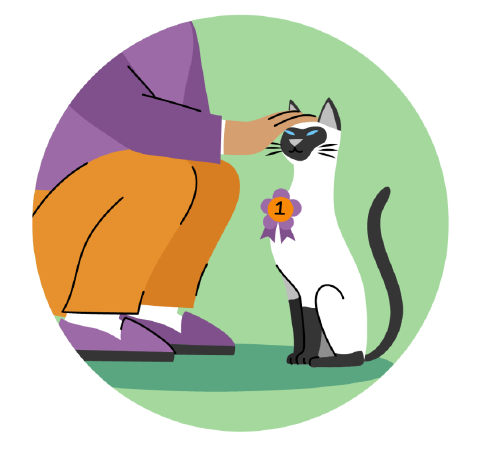
Cat Whisperer
“I am 100% confident that my veterinary care team knows what is best for my cat when it comes to parasiticides. In my experience, they’ve always been supportive and knowledgeable and prioritize my cat’s welfare.”
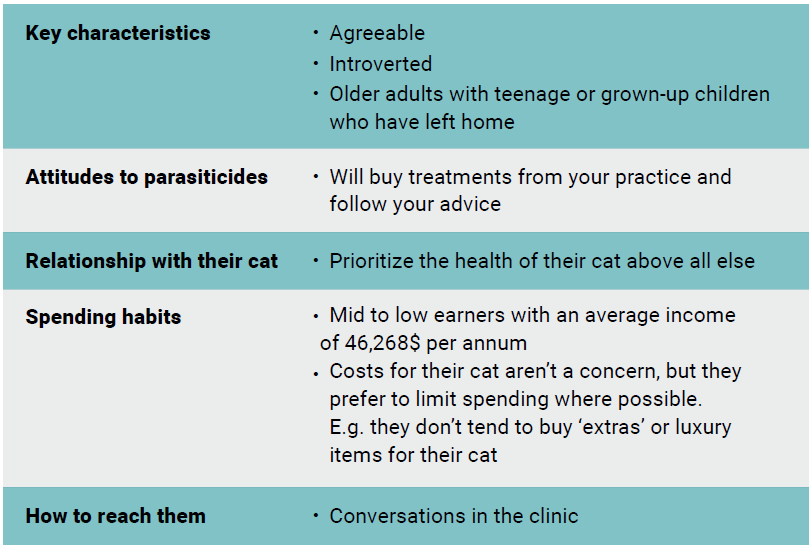
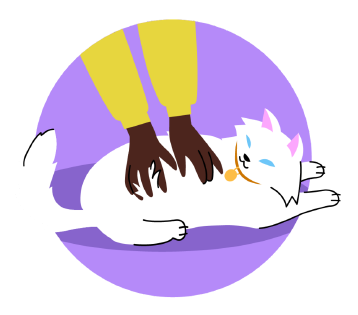
Gentle guardian
“My veterinary team care about helping me keep my cat happy and healthy. While my cat is like a family member, I know they’re descendants of wildcats, so I treat and care for them accordingly”.


Extra-confident Carer
“I know what is best for my cat — keeping things as natural as possible. I’m the one who lives with them and spends time reading about diagnoses, conditions, and remedies for them.”
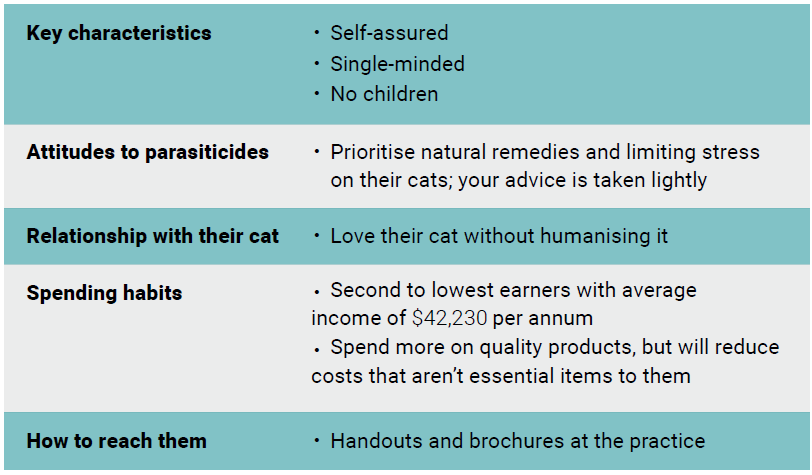

Pet pamperer
“My cat is my baby, best friend, and soulmate — I like to spoil them! I care about them and will browse the internet and take my cat to the clinic whenever I notice something’s wrong.”

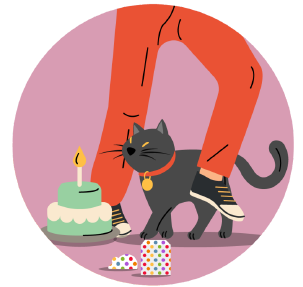
Peacekeeper
“I will do anything it takes to maintain the special bond I have with my cat, and sometimes it means I’ll avoid anything that stresses them out, including giving them tablets, trimming their claws, etc.”
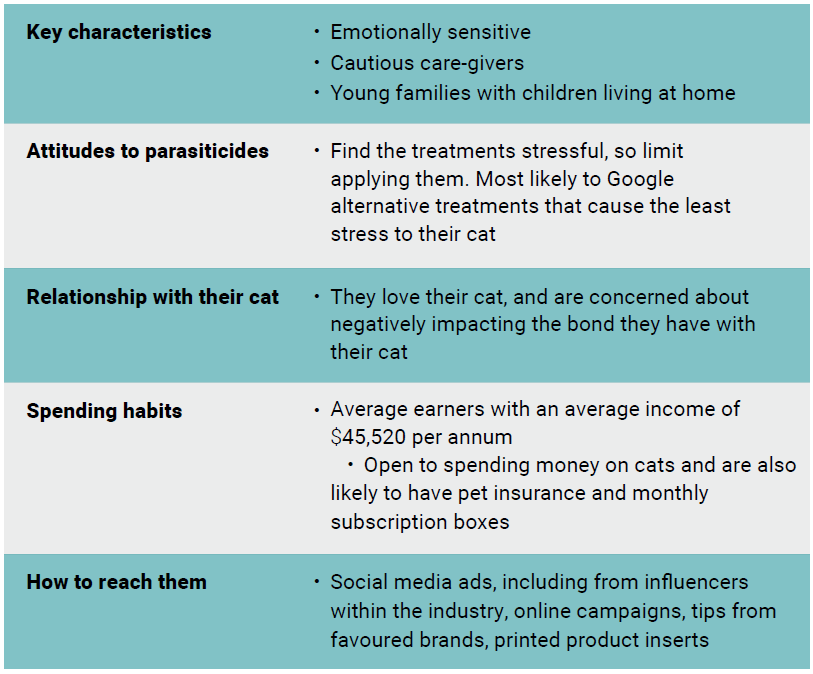

Practical provider
“I will always find the cheapest option for my cat. To save money on veterinary costs, I only take my cat to the veterinarian if it’s necessary.”

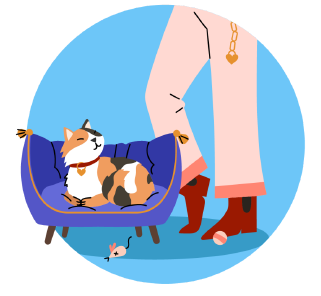
Feline fashionista
“My cat has 17k followers on Instagram — my baby is a celebrity! Yes, they are spoilt, and I’ll do anything to make their lives stress-free, like avoiding monthly tablets if possible.”
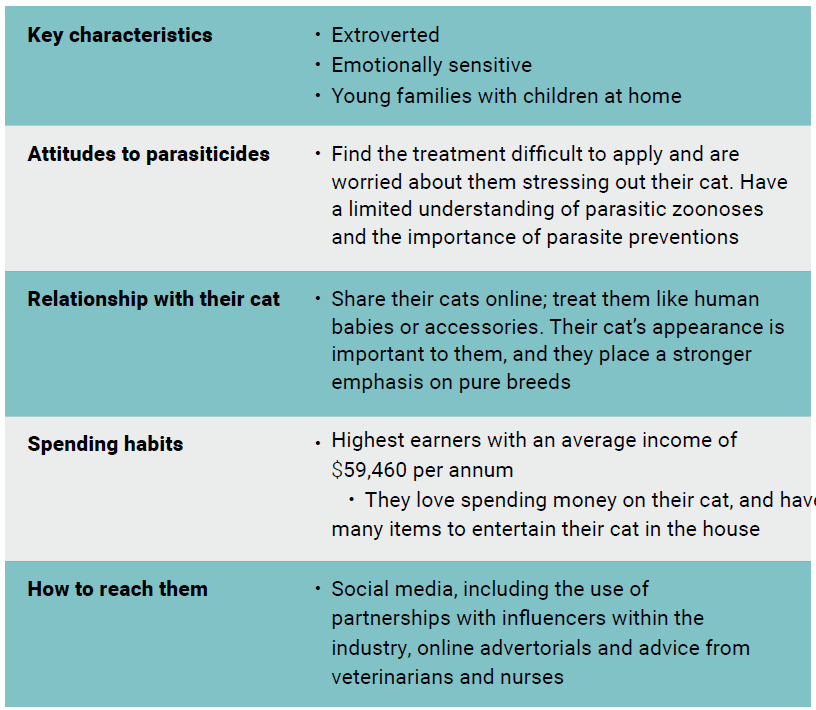
While some owners will follow your guidance to a
tee, others are more reluctant. In those cases, it is
crucial to demonstrate that their cat’s well-being
is also in our best interest, and we explore ways
we can work with them.
Dr Gad Baneth,
DVM PhD Dip ECVP
Professor of Veterinary Parasitology and Infectious Diseases,
Hebrew University of Jerusalem, Israel
Irrespective of their owner persona, it’s clear that each of our survey respondents loves their cat. Yet, gaining a nuanced understanding of different types of cat
owners and their attitudes towards parasite control will empower you and your team to adapt the conversations you have with them accordingly and ultimately improve the well-being of cats.
References:
1.Vetoquinol 2023. Data on file. Research report: Cat owners’ segmentation with a focus on parasiticides.

